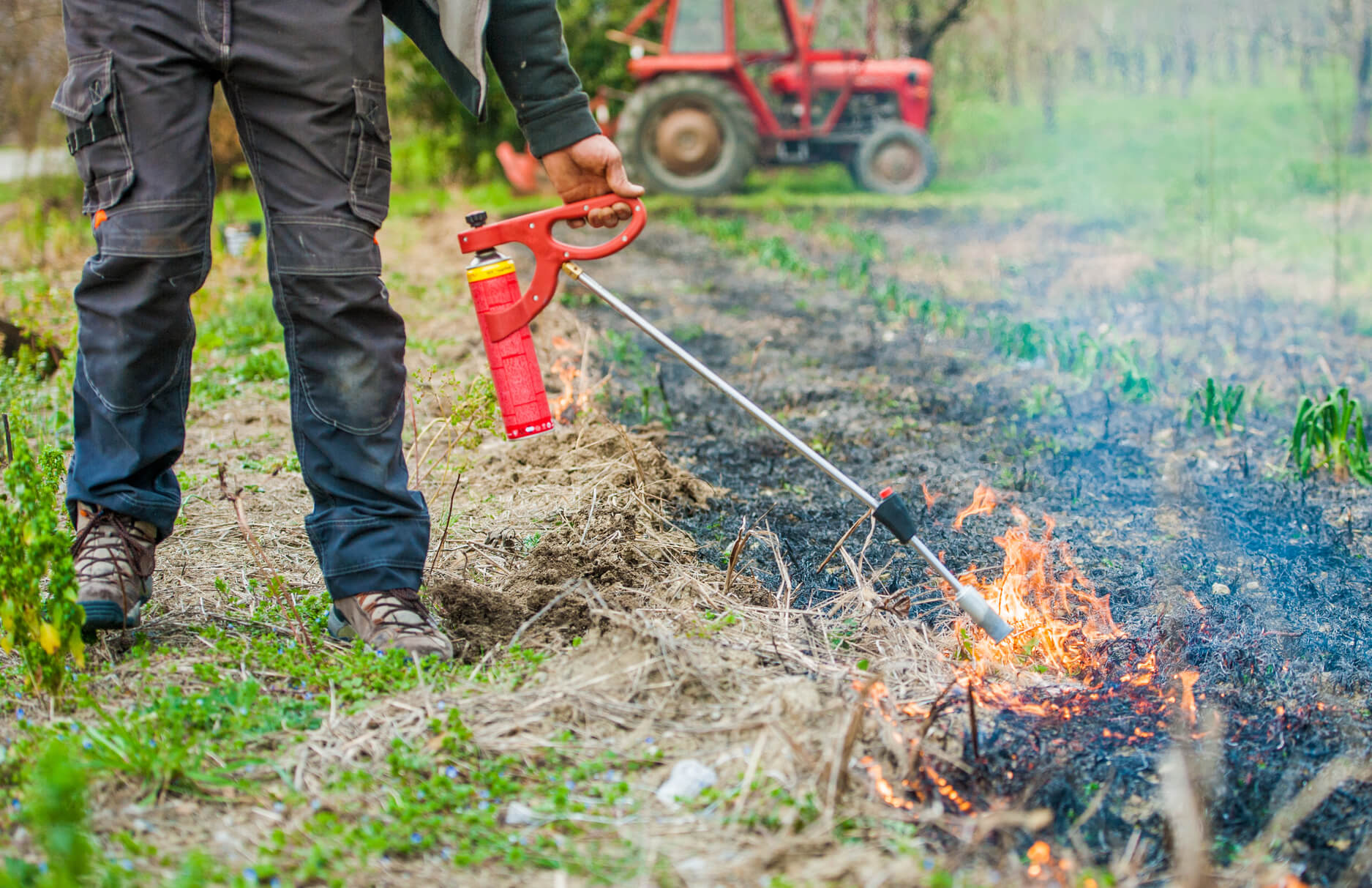
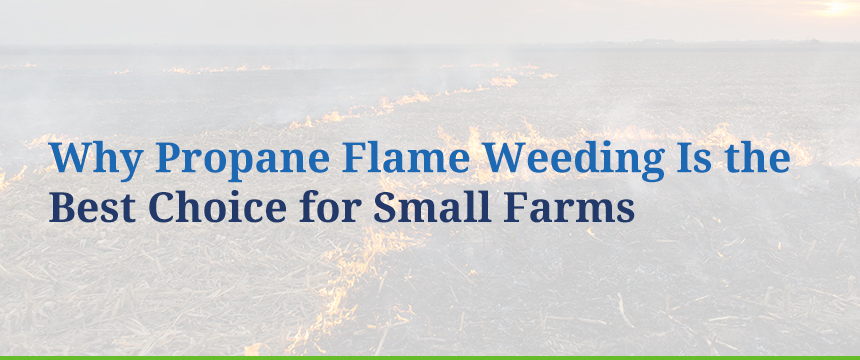
Weed management is a necessary part of any small farming operation. Weeds can suck up water and nutrients and cramp sprouting crops and their roots. A 2016 study by the University of Kansas found that if left unchecked, weeds would cut corn and soybean yields in half and cause $43 billion worth of agricultural losses each year in the United States and Canada.
To get the best yields for their labor and acreage, farmers must figure out the most efficient and effective way to remove these plants from their fields.
Farmers have a few different options when it comes to weed removal, but propane flame weeding is a promising and effective one. Propane flame weed control offers many benefits over conventional herbicides and mechanical weed removal methods, from its ease and efficiency of use to its relative environmental friendliness.
Fill out the form below and a team member will get in touch to address your needs!
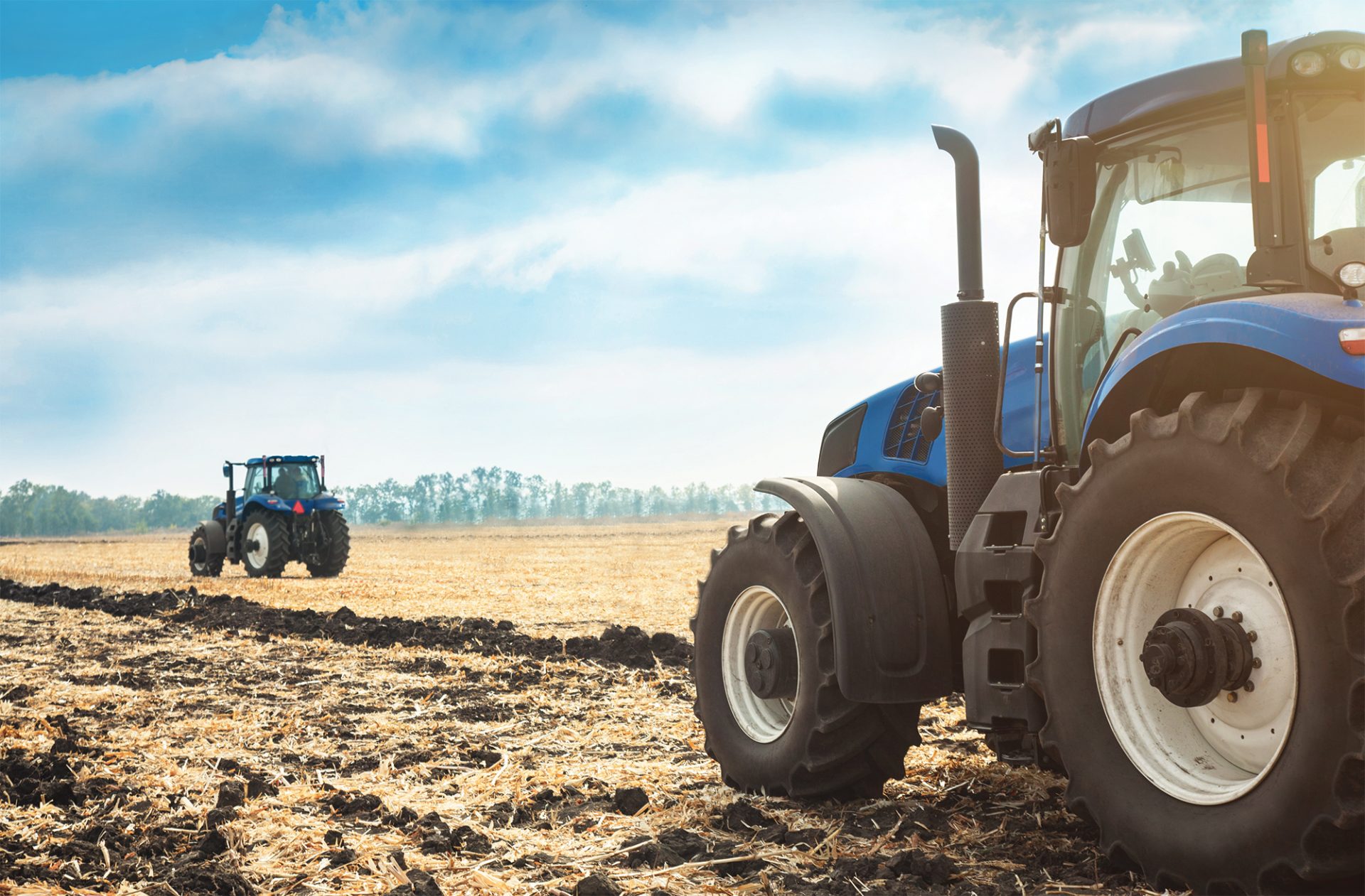
But what is flame weeding, and why is it so useful for small farms? We’ll outline the answers to these questions below.
Flame weeding is a safe, effective way to control weeds in your fields. With flame weeding, farmers can eliminate weeds using propane-propelled flames rather than using pesticides to kill them. The heat of the flame weeder, which can reach 2000 degrees, ruptures the plant cell walls and makes it impossible for them to survive.
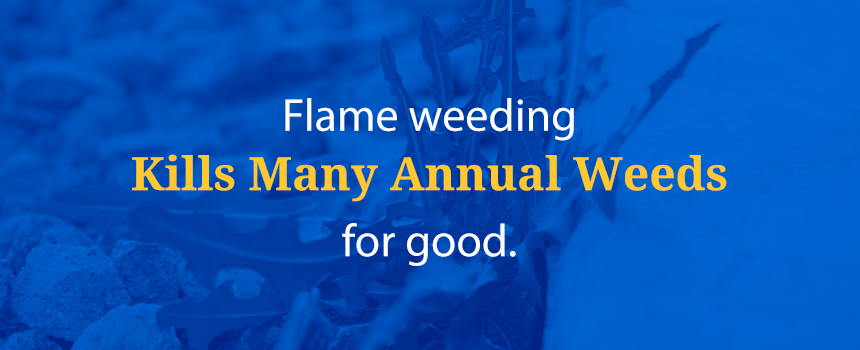
Flame weeding kills many annual weeds for good. Perennial weeds, though, will spring up again because of the roots that remain in the soil. So perennial weeds need a couple of flame-weeding treatments per growing season. Eliminating the top part of the plant will eventually cause the roots to stop producing new plants.
Many people wonder if flame weeding is safe for their crops. The answer is yes — if you use your flame weeder strategically. Using a flame weeder to kill weeds located below the areas of growth on your plants is safe and effective. You can also use flame weeding to weed your fields early, before your seedlings have started to come up, or late, after the harvest, to prepare for the next spring.
Flame weeding has been around for quite some time. It was in use as early as the 1800s and gained popularity throughout the 1960s, with up to 30,000 U.S. farmers using flame-weeding methods during that decade. However, the widespread availability of conventional herbicides dramatically diminished the market for flame weeding. Recently, as many farmers have looked for greener alternatives to harmful pesticides, many have turned to flame weeding as an environmentally friendly, effective, and convenient method of weed control.
Flame weeding involves the use of a propane-fueled flame weeder. Typically, the weeder consists of torch ends and burners connected to a propane tank. A flame weeder can be a handheld torch with a propane tank attached, or it can consist of torches and burners connected to a propane tank mounted onto the back of a tractor.
To use a flame weeder, slowly move the flame along the areas where the weeds are. Just a tenth of a second of exposure to the flame is enough to kill the weeds, so walking or driving slowly down your rows — a speed of three or four miles per hour works well — while pointing the flames at your weeds is usually enough to do the trick. The flames do not set the plants on fire, but they do kill the plants with their high heat.
Farmers use several flame-weeding techniques, including:
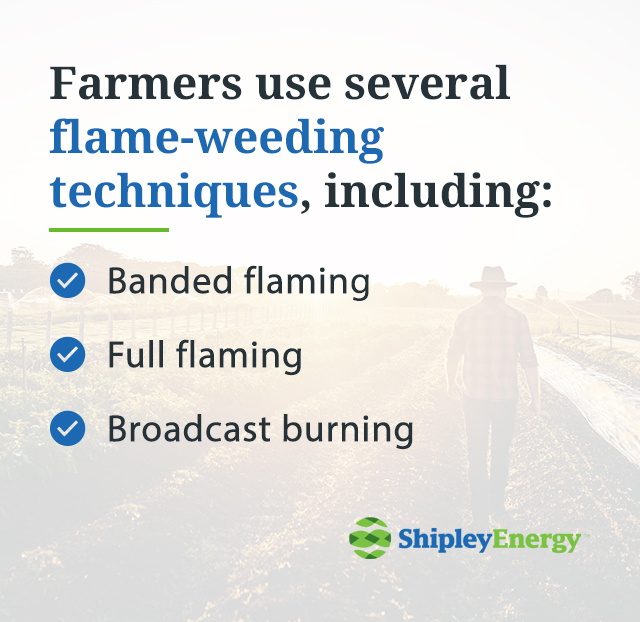
Weeding at the beginning of the growing season, when most of the weeds have emerged but are still small, is often a good idea. A second or third weeding is often necessary to kill perennials that have come back.
Once you have weeded, you should see the appearance of the weeds change substantially. They should lose their luster and become drab. One trick is to wait until the weeds have cooled and then pinch one between your finger and thumb. If you can see your thumbprint on the leaf surface, you’ll know the flame weeding has worked.
Of course, you’ll want to refrain from using a propane flame weeder if the fire danger in your area is high. You should always point your flame weeder away from any deadfall or other dry brown organic matter that could catch fire. You should also check to make sure flame weeders are permitted in your area before using one.
Flame weeding is just as effective as traditional herbicide and mechanical weeding methods. Additionally, it offers several benefits that these other weed control methods cannot:
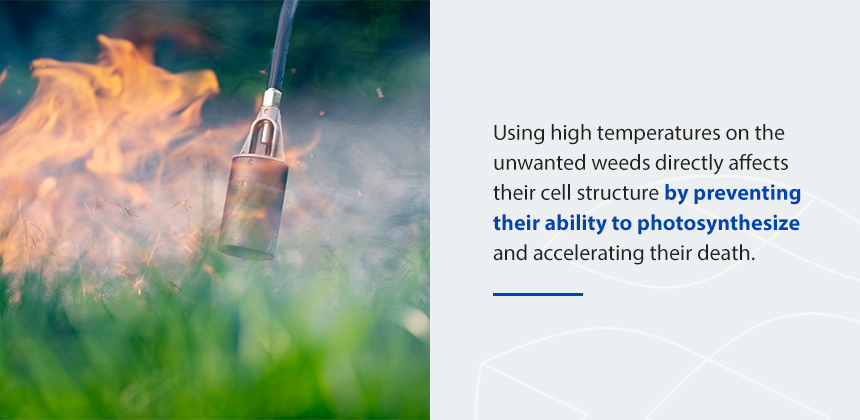
Flame weeding with propane has repeatedly proven its effectiveness as a weed control method. Due to its chemical-free properties, it’s a popular choice among organic farmers. The effects of flame weeding have been studied under controlled conditions to gather conclusive data. The results indicated that the weed control method showed visibly fewer unwanted weeds with little to no adverse effects on the growing plants. Other observational studies show that flame weeding is an effective treatment in vegetation control.
Overall, flame weeding has a substantial impact on just the crops you want to eliminate. The differences in growing points between the weeds and the crops ensure flame weeding only affects the unwanted plants and does so from the root. Flame weeding requires a level of caution and expertise to ensure the heat is high enough to kill unwanted plants without scorching them or the crops you want to keep alive.
That’s why, when done right, flame weeding is a useful method that safely does the job.
The flame weeding method is also useful because it reduces the number of passes needed for a growing crop area. Using this method, farmers can take care of their excess weed problems with one thorough pass. In contrast, a more conventional method like herbicide weed control often requires several passes for effective results.
Burning weeds with propane flames is also cheaper in the short and long term. With the proper equipment from the start, your only expense is the replacement of your propane tank. As a method that’s both inexpensive and environmentally conscious, flame weeding ensures that crop control remains attainable and valuable.
The method’s appeal lies in how it works on a molecular level. Using high temperatures on the unwanted weeds directly affects their cell structure by preventing their ability to photosynthesize and accelerating their death. This quick change offers farmers a quicker and more cost-effective method for controlling vegetation than using tools to pluck weeds.
Using flame weeding to afford your crops a more controlled way to grow is extremely effective. It’s also one of the oldest methods for weed control and it’s making a comeback on a larger scale in recent years. Burning weeds is useful as a way to maintain your crops the way you want them.
Flame weeding provides substantial benefits for small farming operations:






Fill out the form below and a team member will get in touch to address your needs!
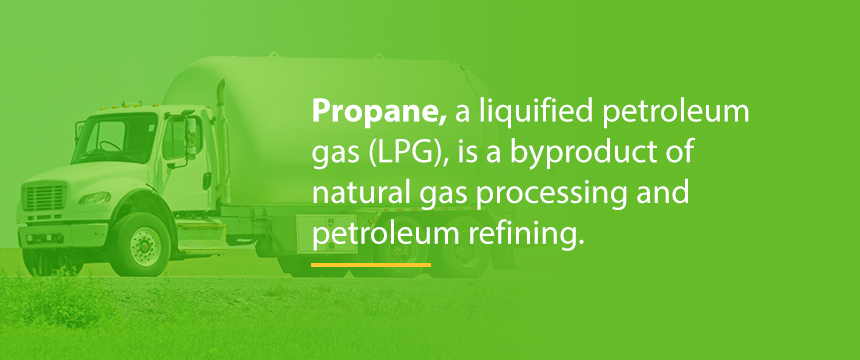
Propane, a liquified petroleum gas (LPG), is a byproduct of natural gas processing and petroleum refining. It is an excellent fuel solution for flame weeders for a variety of reasons:
Shipley Energy has been in business for over 85 years. In that time, we’ve developed a reputation for high-quality service, simple relationships, and useful advice. We want our customers and their farms to succeed, and we want to give them the best tools possible for making that success a reality.
Shipley Energy offers customized pricing to fit every farm’s needs, including fixed, market, and capped-rate structures. We are happy to talk to you to help you figure out the right propane pricing structure for your operation. We also offer convenient, reliable propane delivery straight to your farm.
Contact us today, either by phone or online, to learn more about our services or to schedule propane delivery.

I wanted to let you know that Shipley did fantastic this season. As we wrap up our season THIS weekend (yay!!) I can’t explain to you how nice it was not to worry about propane. So much time was saved on my part not having to check tanks prior to a weekend, and Saturday night to make sure we’d m...
Read moreI wanted to let you know that Shipley did fantastic this season. As we wrap up our season THIS weekend (yay!!) I can’t explain to you how nice it was not to worry about propane. So much time was saved on my part not having to check tanks prior to a weekend, and Saturday night to make sure we’d make it through Sunday. What a relief. Thanks again!
Read less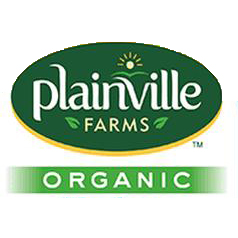
Reliable propane supply is essential for us to be able to provide a comfortable and healthy environment for our turkeys. With Shipley prompt delivery and service is always just a call away with the ability to talk to a real person and not just a answering service. ...
Read moreReliable propane supply is essential for us to be able to provide a comfortable and healthy environment for our turkeys. With Shipley prompt delivery and service is always just a call away with the ability to talk to a real person and not just a answering service. The remote tank monitoring with automatic delivery is a easy way to ensure you never run out of propane. Shipley is the only propane supplier that I recommend to my turkey growers.
Read less